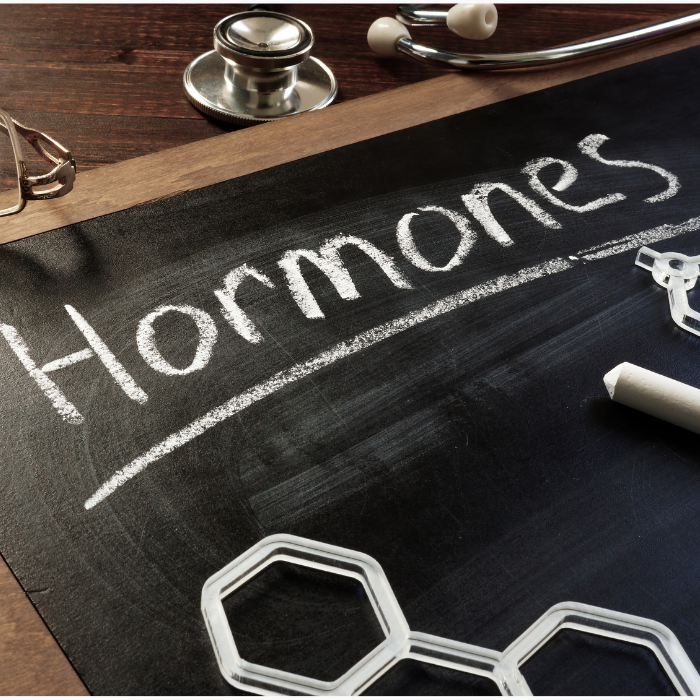As more men and women seek safe, personalized solutions for hormone imbalance, one question consistently arises: What’s the difference between bioidentical and synthetic hormones—and why does it matter? It’s a valid question, and one with significant clinical implications. Understanding the key distinctions between these two forms of hormone therapy is essential for making informed decisions about your health, your body, and your long-term wellness strategy. At Optimize U Louisville, we exclusively use bioidentical hormones for one very important reason—they’re molecularly identical to what the human body naturally produces. And that makes all the difference.
To understand the significance of bioidentical hormones, it helps to start with the basics. Hormone replacement therapy (HRT) refers to the medical process of supplementing hormones—such as estrogen, progesterone, testosterone, and thyroid hormones—when the body no longer produces them in sufficient quantities. This can occur due to aging, stress, environmental exposures, medical procedures, or underlying endocrine conditions. The goal of HRT is to restore balance, alleviate symptoms, and optimize health. However, not all hormone therapies are created equal. The source, structure, and delivery method of the hormones used can profoundly affect how well they work—and how safe they are over time.
Synthetic hormones are lab-manufactured compounds that are designed to mimic the effects of human hormones but do not match their exact chemical structure. A classic example is medroxyprogesterone acetate, a progestin used in conventional HRT. While it binds to some of the same receptors as natural progesterone, its molecular structure differs significantly. These structural differences can lead to altered metabolism, unpredictable interactions in the body, and—in some cases—increased health risks. For instance, large studies like the Women’s Health Initiative (WHI) linked certain synthetic hormone combinations with elevated risks of blood clots, stroke, and breast cancer, particularly when administered without personalization or regular monitoring.
Bioidentical hormones, on the other hand, are derived from natural plant sources—typically soy or yam—and then refined to be chemically identical to the hormones produced by the human body. This means that when a bioidentical hormone enters your bloodstream, your body recognizes it as its own. It binds to the same receptors, follows the same metabolic pathways, and offers a much higher degree of physiological compatibility. The result is a more natural, predictable response with fewer side effects and better outcomes.
At Optimize U Louisville, we exclusively prescribe bioidentical hormone therapy (BHRT) because it allows us to tailor each treatment plan to the individual’s exact biochemistry. No two patients are the same—so why should their hormone prescriptions be? Our approach begins with comprehensive lab testing that evaluates not only hormone levels, but also co-factors such as SHBG, cortisol, DHEA, thyroid function, and inflammatory markers. From there, we develop a customized protocol using bioidentical testosterone, estrogen, progesterone, or thyroid hormones—administered via the most effective route for that patient’s lifestyle and goals.
Safety and tolerability are two of the biggest advantages of BHRT. Because bioidentical hormones metabolize just like the hormones your body once produced naturally, they tend to produce fewer adverse reactions. Many patients who previously struggled with side effects on synthetic HRT—such as bloating, mood swings, headaches, or breast tenderness—report a much smoother experience when transitioned to bioidentical formulations. Additionally, bioidentical progesterone has shown a more favorable safety profile compared to synthetic progestins when it comes to cardiovascular health, breast tissue effects, and mood regulation. This is especially important for women navigating perimenopause or postmenopause, when the risks and benefits of hormone therapy must be carefully weighed.
Customization and delivery options also set BHRT apart. Synthetic hormone therapies are often delivered in fixed-dose pills or patches, limiting personalization. Bioidentical hormones, in contrast, can be compounded into creams, gels, injections, troches, or pellets based on a patient’s preference and how their body absorbs each form. This flexibility allows us to fine-tune both dosage and delivery to ensure optimal absorption, efficacy, and convenience. For example, men with low testosterone may do well with weekly bioidentical injections or long-acting pellets, while women with estrogen imbalances might benefit from a transdermal cream that mimics the body’s natural diurnal rhythm.
One of the most powerful aspects of BHRT is the ability to monitor and adjust therapy in real time. At Optimize U, hormone optimization is never a one-time prescription. It is an ongoing partnership between provider and patient. We use frequent follow-up labs, symptom tracking, and clinical feedback to adjust therapy dynamically. This ensures that hormone levels remain within an optimal—not just “normal”—range, and that you continue to experience improvements in energy, mood, sleep, metabolism, sexual function, and cognitive clarity.
Another key distinction is the metabolism and breakdown of hormones in the liver. Synthetic hormones often produce metabolites that differ from those of natural hormones, and these altered byproducts can have unpredictable effects. For example, certain synthetic estrogens increase clotting factors in the liver, which may elevate cardiovascular risk. In contrast, bioidentical estradiol and estriol produce metabolites that the body is naturally equipped to manage, making them less disruptive to hepatic function and safer in long-term use—especially when delivered via non-oral routes that bypass first-pass liver metabolism.
Despite their clear benefits, bioidentical hormones have historically been misunderstood or misrepresented, in part due to confusion between compounded BHRT and FDA-approved products. It’s important to note that bioidentical hormones are available in both forms. While some are compounded specifically for individual patients, others—such as bioidentical estradiol and progesterone—are available in FDA-regulated preparations. At Optimize U, we work with only the most reputable compounding pharmacies that follow strict quality standards and third-party testing, ensuring that every dose is pure, consistent, and effective.
From an outcomes perspective, patients on BHRT often report life-changing improvements in how they feel and function. Women who have been dismissed for years with symptoms like brain fog, mood swings, weight gain, and insomnia finally feel heard—and more importantly, feel better. Men who thought their fatigue and low drive were just “part of getting older” rediscover clarity, strength, and purpose. Hormone therapy done right—using bioidentical molecules, personalized protocols, and evidence-based monitoring—restores quality of life in a way that no generic solution can.
So why does this distinction matter? Because when it comes to your hormones, structure determines function. The body is exquisitely designed to respond to its own chemistry. Anything that deviates from that design—no matter how well-intentioned—carries the risk of dysfunction. Bioidentical hormones honor that design. They don’t override it. They work with your body, not against it. And in the hands of a knowledgeable, clinically trained team like ours at Optimize U Louisville, they offer one of the safest, most effective tools available in the pursuit of lifelong vitality.
If you’ve been told that hormone therapy isn’t for you—or if you’ve tried synthetic options with underwhelming results—it may be time to revisit the conversation. The science has evolved. The options have improved. And your body deserves a therapy that supports its natural intelligence.






